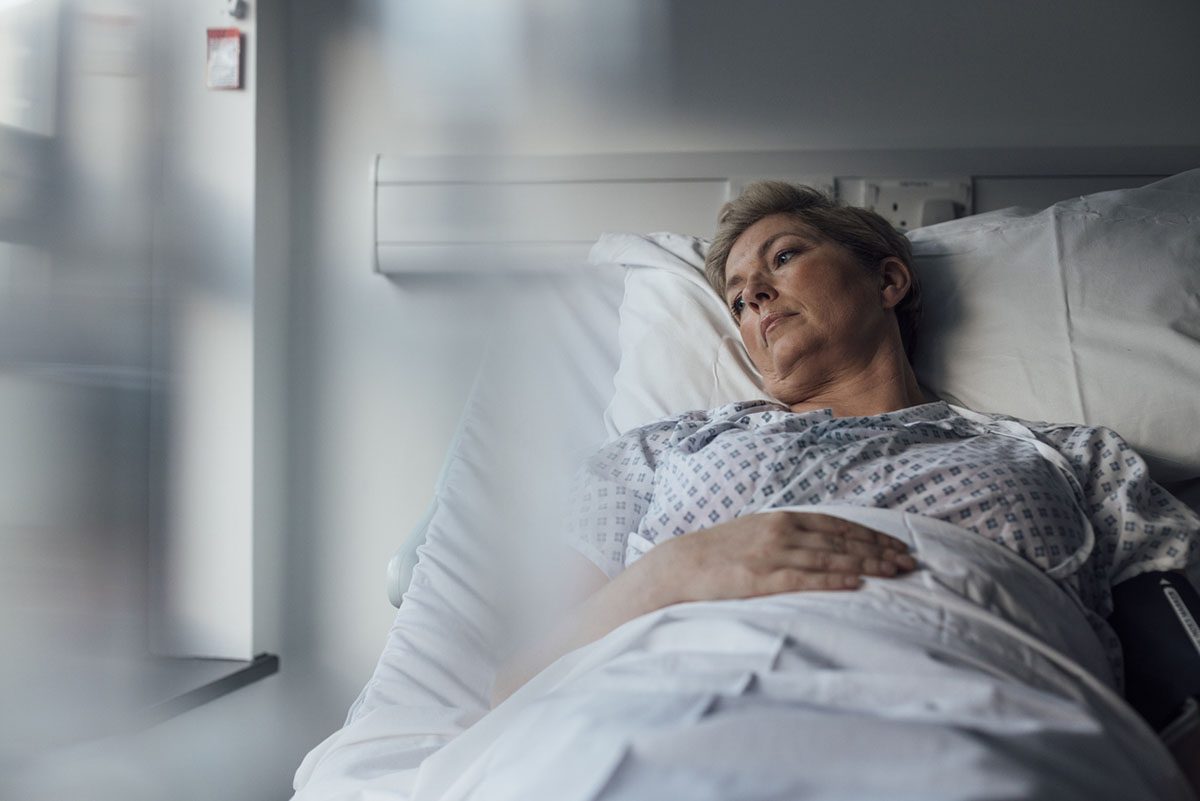Prim Care Companion CNS Disord 2021;23(1):20l02827
To cite: Lynch A, Bastiampillai T. COVID-19 pandemic–induced late-onset psychotic depression with catatonia. Prim Care Companion CNS Disord. 2021;23(1):20l02827.
To share: https://doi.org/10.4088/PCC.20l02827
© Copyright 2021 Physicians Postgraduate Press, Inc.
aDepartment of Psychiatry, Southern Adelaide Local Health Network, Bedford Park, Australia
bDepartment of Psychiatry, Monash University, Melbourne, Victoria, Australia
cCollege of Medicine and Public Health, Flinders University, Adelaide, South Australia, Australia
*Corresponding author: Alexandra Lynch, MBBS, Department of Psychiatry, Southern Adelaide Local Health Network, Flinders Drive, Bedford Park, South Australia, Australia 5042 ([email protected]).
There is concern about the impact of the coronavirus disease 2019 (COVID-19) pandemic on mental health outcomes.1,2 Self-isolation measures, while important in curbing the spread and impact of COVID-19, are likely to increase rates of anxiety and depression.3–5 We present a case of COVID-19–related anxiety leading to a late-onset psychotic and catatonic depression.
Case Report
Ms A is a 78-year-old woman living independently in her own unit. Ms A does volunteer community work and is an active member of her church. She has no past history or family history of mental illness. She has a history of medication-controlled hypertension and hypercholesterolemia.
In mid-March 2020, social-distancing measures were introduced in Australia. The volunteer service advised her that anyone aged over 70 years should not continue to participate. This triggered Ms A’s decision to cease her usual social activities. By late March, she became increasingly anxious with specific concerns about contracting COVID-19 and transmitting it to the community. She began to ruminate about her lack of value to society and spent much of her day watching COVID-19–related news. Over the next 2 months, she became increasingly depressed with anhedonia, social withdrawal, and sense of hopelessness, helplessness, and worthlessness and began experiencing suicidal ideation accompanied by neuro-vegetative disturbance (sleeping 1 to 2 hours per night, reduced appetite, psychomotor agitation). In mid-May, she developed psychotic symptoms with delusions of guilt, believing she had let everyone down and was to blame for everything that was happening. She was brought to the hospital after calling her niece and expressing suicidal ideation. At admission, she had excited catatonia with motor excitement, stereotypy, grimacing, verbigeration, and perseveration. Initial magnetic resonance imaging brain scan showed mild chronic small vessel ischemic changes within expectation for age, and all blood tests were within normal limits (urea and electrolytes, liver function tests, thyroid function test, c-reactive protein, complete blood examination). Her initial Montreal Cognitive Assessment (MoCA)6 score was 19/30 and Montgomery-Asberg Depression Rating Scale (MADRS)7 score was 49/60.
Ms A’s treatment consisted of a combination of mirtazapine, olanzapine, lorazepam, and bifrontal electroconvulsive therapy (ECT). She responded well to this combination (post-ECT MADRS score: 2/60 and MoCA score: 22/30) and was discharged after 6 weeks in the hospital. She has been in clinical remission for 12 weeks since discharge, maintained on mirtazapine 45 mg and olanzapine 5 mg. She is no longer anxious or depressed and is not concerned about contracting COVID-19 or infecting others. She has re-engaged with her usual activities including church and social engagements but has not resumed volunteering. Her situation has been helped by the easing of social restrictions in this region in July and negligible rates of COVID-19 infection and related death rates (4 deaths in total). She is now also limiting her consumption of COVID-19 news.
Discussion
This presentation uniquely highlights the impact of COVID-19 in triggering a late-onset psychotic depression with excited catatonia. There is literature8–10 that discusses stressful life events triggering depression, mania, and psychosis but not specifically psychotic depression. It is of note that Ms A has intrinsic altruistic qualities. Altruistic individuals may be more vulnerable to the psychological effects of the pandemic, as they are limited in their ability to help their local communities.11 The elderly are at risk of social disconnection, as they may be less likely to counteract social isolation through use of technology. Overall, there needs to be a sophisticated approach to balancing the risks of infection against the negative mental health consequences of protracted isolation in this vulnerable population.12 There is a crucial need for psychosocial interventions to protect the mental health of the elderly during the COVID-19 pandemic, with early intervention being important to prevent evolution into severe illness.
Received: October 5, 2020.
Published online: February 18, 2021.
Potential conflicts of interest: None.
Funding/support: None.
References (12)

- The Lancet Public Health. COVID-19: from a PHEIC to a public mental health crisis? Lancet Public Health. 2020;5(8):e414. PubMed CrossRef NLM
- Pfefferbaum B, North CS. Mental health and the COVID-19 pandemic. N Engl J Med. 2020;383(6):510–512. PubMed CrossRef NLM
- Uvais NA. Psychological impact of the COVID-19 pandemic among the elderly: a case series from India. Prim Care Companion CNS Disord. 2020;22(4):20com02675. PubMed CrossRef NLM
- Armitage R, Nellums LB. COVID-19 and the consequences of isolating the elderly. Lancet Public Health. 2020;5(5):e256. PubMed CrossRef NLM
- Banerjee D. ‘Age and ageism in COVID-19’: elderly mental health-care vulnerabilities and needs. Asian J Psychiatr. 2020;51:102154. PubMed CrossRef NLM
- Nasreddine ZS, Phillips NA, Bédirian V, et al. The Montreal Cognitive Assessment, MoCA: a brief screening tool for mild cognitive impairment. J Am Geriatr Soc. 2005;53(4):695–699. PubMed CrossRef NLM
- Montgomery SA, Asberg M. A new depression scale designed to be sensitive to change. Br J Psychiatry. 1979;134(4):382–389. PubMed CrossRef NLM
- Beards S, Gayer-Anderson C, Borges S, et al. Life events and psychosis: a review and meta-analysis. Schizophr Bull. 2013;39(4):740–747. PubMed CrossRef NLM
- Mitchell PB, Parker GB, Gladstone GL, et al. Severity of stressful life events in first and subsequent episodes of depression: the relevance of depressive subtype. J Affect Disord. 2003;73(3):245–252. PubMed CrossRef NLM
- Lex C, Bäzner E, Meyer TD. Does stress play a significant role in bipolar disorder? a meta-analysis. J Affect Disord. 2017;208:298–308. PubMed NLM
- Feng Y, Zong M, Yang Z, et al. When altruists cannot help: the influence of altruism on the mental health of university students during the COVID-19 pandemic. Global Health. 2020;16(1):61. PubMed CrossRef NLM
- Steinman MA, Perry L, Perissinotto CM. Meeting the care needs of older adults isolated at home during the COVID-19 pandemic. JAMA Intern Med. 2020;180(6):819–820. PubMed CrossRef NLM
Please sign in or purchase this PDF for $40.
Save
Cite



